Our philosophy on music education is embodied by our six core beliefs.
1) Each student is unique and deserves a curriculum that is specifically tailored towards them.
• From structured curriculums to free-flowing holistic approaches, each student receives instruction that is designed around who they are. With students playing an active role in their own education, they literally grow into what they aspire to become.
2) A holistic education nurtures the entire being.
• Cultivating the emotional, physical, and psychological aspects of a developing student complements their study of music, just as studying music deepens their appreciation for life. Our students are then able to take the skills they learn through music (such as efficient time management and healthy self-analysis) and apply them to other areas of their lives.
3) An exceptional education in music should be comprehensive.
• We believe students should be enabled with the knowledge and skills they need to achieve their musical goals, wherever their interests lie. That is why composition, improvisation, music theory, ear training, and music history are directly embedded into our curriculum.
4) Performance is at the core of each and every musical journey.
• Students should have a variety of performance opportunities available to them throughout the year. We offer master classes, community service concerts, and formal recitals to our students so they are able to hone their craft and stay motivated.
5) Students need an experienced teacher who is committed to ongoing education.
• An effective teacher will be able to inspire and motivate while adapting to the evolving needs of students. Staying up to date with new advances in music education and technology allows us to keep our teaching relevant and engaging.
6) Technology is an indispensable resource for the modern student.
• These days, students have access to a stunning array of learning tools. We help deepen learning by delivering information the way students want to receive it - through utilizing educational sites, forums, and blogs, as well as online apps, recordings, videos, and Zoom/Skype/FaceTime lessons.
Teaching Philosophy
My teaching method is a unique combination of traditional conservatory coursework, Suzuki Method, Alexander Technique, as well as applied theory in educational and developmental psychology. My teaching style is loosely based off of the work of Paolo Freire; thus, I frequently use awareness exercises and teach using the Socratic method in my studio. Ultimately, I want my students to be able to teach themselves. For me, self-directed learning is the true sign of a good education.
I am an advocate of the Alexander Technique and believe the root to good playing is a strong foundation (good posture and sound body mechanics). Because of this, I use a kinesthetic approach to teaching. By physically adjusting the student, I can impart kinesthetic feedback and help the student realize which postures are correct or incorrect without having to confuse the student with verbal explanations.
My goal in teaching music is not only to produce competent musicians but also competent human beings. My studio focuses on the development of necessary life skills such as efficient time management, project planning, constructive self-criticism, good decision making, and healthy self-analysis. My hope is that my students will take the skills they learn through music and apply them to other areas of their lives.
Practice Policy
The most important factor in developing skill on an instrument is consistent, daily practice. Daily practice helps students to be fully prepared for their weekly lessons. Therefore, practicing seven days a week must become a habit for the student. Without practicing each day, a student will not be able to achieve their full potential.
Many teachers encourage students to practice for long periods of time. However, due to the limited nature of a student’s attention span, breaking up their daily practice time into shorter sessions helps them to retain more of what they learn. Since time is more limited, students must learn to set realistic goals and manage their time effectively by focusing on specific goals during each practice session. If done correctly, students won’t be tempted to mindlessly play through assignments (which can lead to frustration and boredom), and are more likely to be focused and interested when practicing.
The time spent on each practice session and the number of practice sessions per day will vary from student to student. Parents can help their student succeed by providing a quiet, consistent time each day in which the student can practice (free of any interruptions) and by furnishing this space with a music stand, a metronome, an electronic tuner, comfortable seating, and adequate lighting.
“I feel so fortunate that my daughter has had the benefit of Quyen’s outstanding musical and pedagogical talents. Not everyone with a rare skill also has the patience and insight to teach it, but Quyen seems to care equally about both sides.
Quyen was very patient and ever ready to adapt or try new approaches. Over the years we have both formed great respect and admiration for Quyen!”

